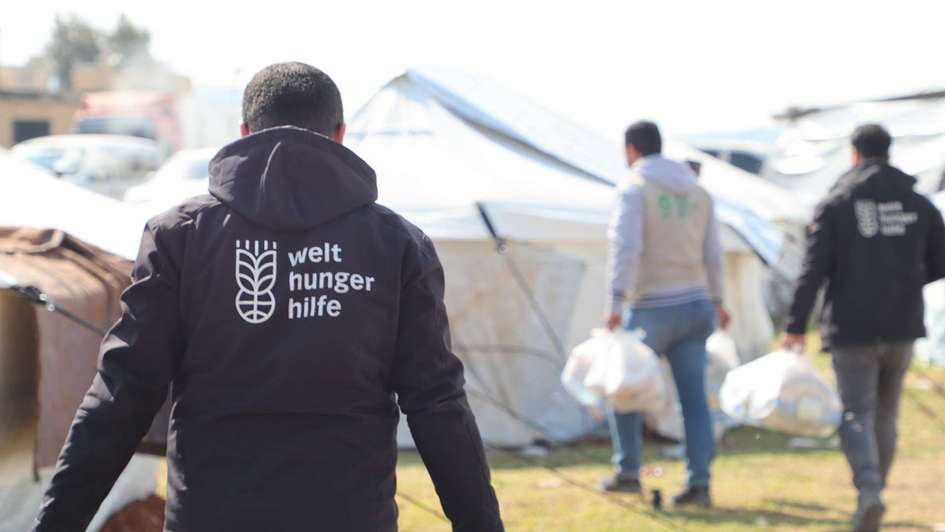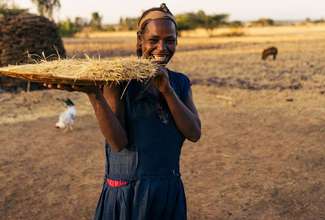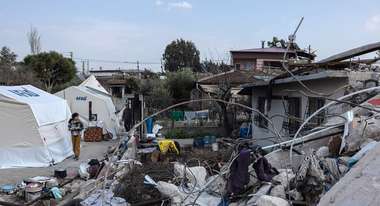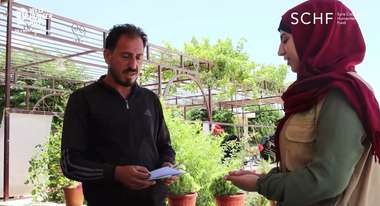Syria: Thirteen Years of War and Destruction
People in Northwestern Syria Desperately Need a Way Forward as the Humanitarian Situation Hits New Lows

Bonn/Berlin, 2024-03-14. Welthungerhilfe is alarmed to report that humanitarian conditions in northwestern Syria remain catastrophic. After 13 years of war, around two thirds of Syria’s 22.1 million residents are forced to depend on humanitarian aid. Twelve million people, or more than half of the population, cannot count on getting enough food.
The situation has been exacerbated by rising prices, a profound economic crisis, and unemployment caused by the coronavirus pandemic. In northwestern Syria, where Welthungerhilfe works, around 4.1 million of the total 4.5 million residents have to rely on humanitarian aid.
Statement by Roxana Romanica (Head of Program for Northwestern Syria), Following a Project Visit to the Talha/Azaz Refugee Camp:
“It is unbearable what people in the Talha/Azaz refugee camp in northwestern Syria have to live through. After 13 years of civil war, families are finding themselves in greater need at the same time as resources to support them are decreasing. Many refugees told me that the public eye is on Ukraine or Gaza, leaving displaced people in northwestern Syria to feel forgotten as their plight is overshadowed by these other wars. The fact of the matter is that violent clashes have wounded or killed many people in the region since early October 2023.
“I was shocked by the scarcity of everything: scarcity of food due to severe cuts to food rations, scarcity of infrastructure, scarcity of access to sanitation facilities that we take for granted at home, and scarcity of schools for children. The refugees’ needs have stayed the same since the crisis began, but the number of people in need has risen. While more and more people were displaced, less and less aid was being provided. As a result, many families are reducing serving portions or even skipping meals entirely. In desperation, parents are increasingly feeling forced to send their children out to work or beg or to marry their daughters off at a young age. When an earthquake struck on February 6, 2023, the situation deteriorated even further.
“The refugees have a message for the international community: Please do not forget us. We are still here, the people of Syria. We still need support, and our circumstances are growing more dire as funding falls.”
Roxana Romanica, the head of the program for northwestern Syria, is available for interview upon request.
Welthungerhilfe is one of the largest private aid organizations in Germany and has no political or religious affiliations. It is fighting for “Zero Hunger by 2030.” Since its inception, it has provided funding of EUR 4.75 billion for more than 11,498 overseas projects in 72 countries. Welthungerhilfe follows the principle of supporting people in realizing their rights and sustainably improving their living conditions, which it implements with measures ranging from rapid disaster relief to rehabilitation to long-term development cooperation projects with national and international partner organizations.








